100-year-old oven the secret to famous banana cake in JB bakery
Hiap Joo Bakery & Biscuit Factory in Johor Bahru uses a wood-fired oven to bake cakes and buns. Its famous banana cakes are made non-stop from 11am till 5pm each day.
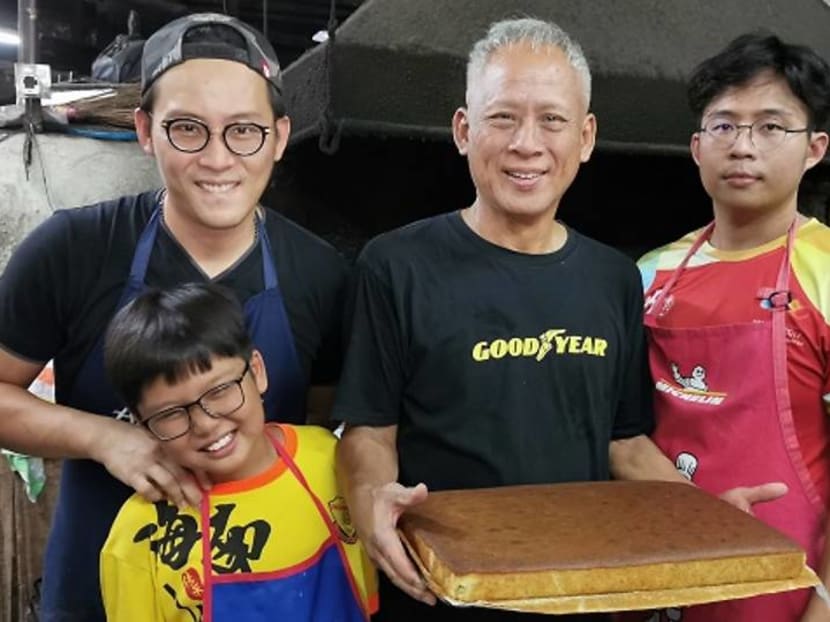
Mr Lim Meng Chin with his two sons and grandson. He wants Hiap Joo to always be owned by members of his family. (Photo: Amir Yusof)
JOHOR BAHRU: At noon every day, the scent of freshly baked confectionery wafting out from a quaint bakery fills a street in downtown Johor Bahru.
Customers eager to taste the first batch of banana cakes of the day have already formed a snaking queue outside the shop, indulging in the sweet, fruity aroma.
Inside Hiap Joo Bakery & Biscuit Factory, amidst what feels like organised chaos, trays upon trays of cake pans emerge from a huge hole in the wall - the bakery’s traditional wood-fired oven.
Still warm, the cakes are sliced and packed into clamshell plastic containers.
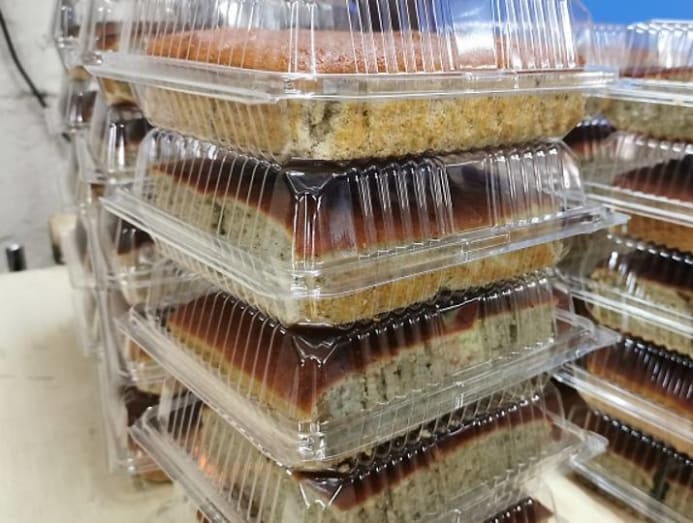
These tender, speckled cakes with caramel brown crust is the reason for the line of people in front of Hiap Joo.
An addition to the century-old bakery in 2003, this very cake saved the business from a looming bankruptcy and made Hiap Joo famous among the sweet-toothed Malaysians and Singaporeans.
OLD IS GOLD: HIAP JOO’S WOOD-FIRED OVEN
Mr Lim Meng Chin, the bakery’s owner, said that Hiap Joo’s success can be attributed to its oven and the shop has no intention of switching to a “more modern” appliance with temperature control dials and timers.
“We have kept it as it is since the old days, not changed. Of course the oven makes the difference, everything we cook in it tastes better.
“Even when we cook rice or water in the oven, the aroma is different, the taste is different,” added Mr Lim, 67.
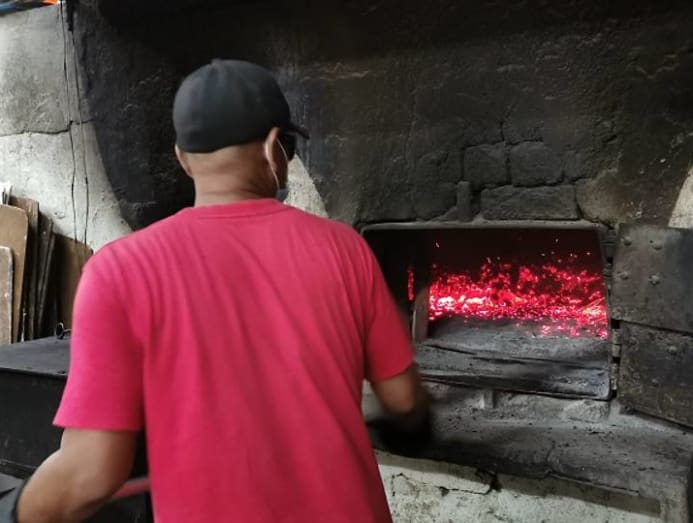
Visitors impressed with the rustic charm of the oven would take pictures and upload them on social media, contributing to the bakery's popularity over the last decade.
“People are all fascinated by the oven. The bakery is quite small and compact but they will still try to take a picture of the oven and pose with it.
“Some of the customers don’t believe that I would use such a traditional oven. I encourage them to take pictures of it,” said Mr Lim, who is also a tai chi master.
Hiap Joo, with its built-in oven, started operations in 1919. It was opened by an Englishman, who sold it to the Lim family in 1930. Mr Lim’s father was one of eight family members who owned and operated the bakery.
However, during the Japanese Occupation in World War II, the family members gave up the bakery in fear of being killed, and ran to hide in the jungle.
The bakery and oven were left untouched until after the war when the family returned and resumed operations.
Mr Lim’s father obtained sole ownership of the bakery in 1960, and ran the business until his death in 2003.
READ: Johor’s lobster haven: Town near Desaru draws visitors with abundant fresh catch
THE BAKERY'S TURNING POINT
From its founding until 2003, the bakery sold only French loaves and sandwich loaves. Its best-seller had yet to exist.
But after his father’s death, Mr Lim and his son, Lim Toh Shian, held a discussion on how to generate a higher profit margin for the bakery.
It was a watershed moment for Hiap Joo as the bakery had been on a downward spiral and was heading towards bankruptcy.
But Toh Shian, 40, had an idea to bake banana cakes and buns with filling such as coconut, red bean, kaya, ikan bilis, otah and potato curry.
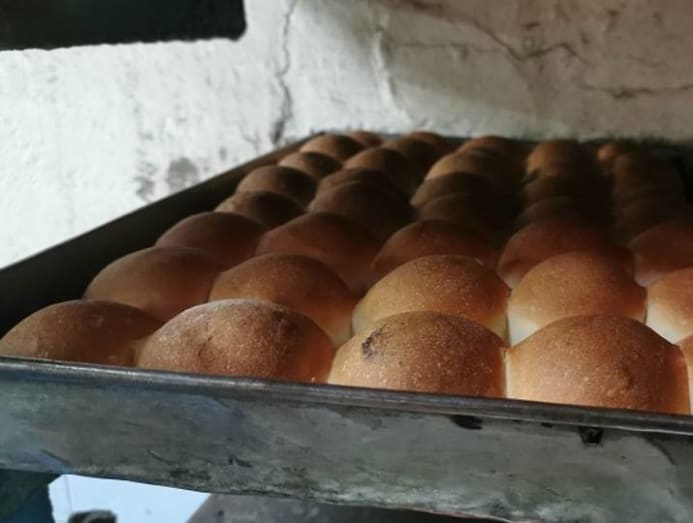
The idea proved to be fruitful as Hiap Joo’s popularity rose. Scores of customers, from as far as Singapore and Kuala Lumpur, would brave long queues to buy packs of the banana cakes.
“It was a turning point for Hiap Joo,” said Toh Shian.
“For the first five years or so, we worked really hard — me, my father and my two uncles. We worked long hours to get the batter (for the banana cake) right. Soon, we managed to turn a huge profit.”
Due to its popularity, they bake the banana cakes non-stop from 11am till 5pm each day.
To preserve the quality, Mr Lim is particular on the recipe, the ingredients and even the materials. He insists on a specific type of banana - berangan - which has a slightly dry and starchy texture.
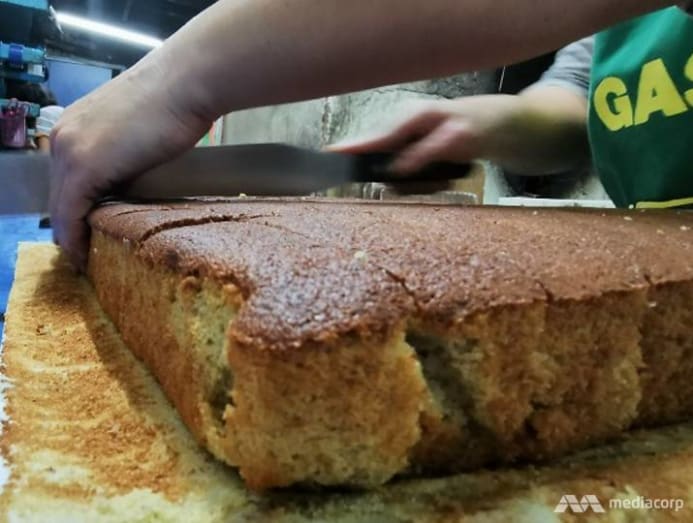
The wood he uses for the oven is from a rubber or bakau tree.
The prices of these logs have increased over the years, but he found the right supplier from Peninsular Malaysia to ensure the Hiap Joo banana cake brand is preserved.
“If we use a different kind of baking pan, the cake wouldn’t rise nicely. It just didn’t work,” said Mr Lim.
Although he insisted on using the same oven, he has relented to Toh Shian’s request to use a modern food processor, so that the bakery can whip eggs, banana and flour in 15 minutes, instead of the manual way which could take up to an hour.
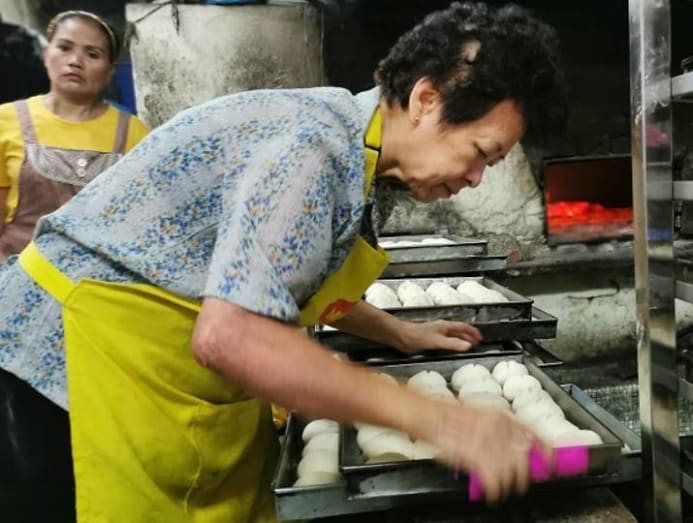
Toh Shian, who started working at Hiap Joo at 18 after he finished secondary school, explained that it is important to find the balance between coarsely and finely mashed mixture.
“The banana needs to be slightly chunky, which gives the bread its moist, gooey texture,” said Toh Shian.
“We want a little pulp to make the cake lighter, fluffier,” he added.
READ: Nasi kandar shop in Penang draws crowd with century-old recipes
NO PLANS TO EXPAND FOR NOW
Following the bakery’s success over the last 17 years, will Hiap Joo consider to expand its business, or even open one outlet in Singapore where it has a large fan base?
“We thought about it but that would mean moving away from our traditional baker style of operation, using a wood-fired oven for our cakes and buns,” said Toh Shian.
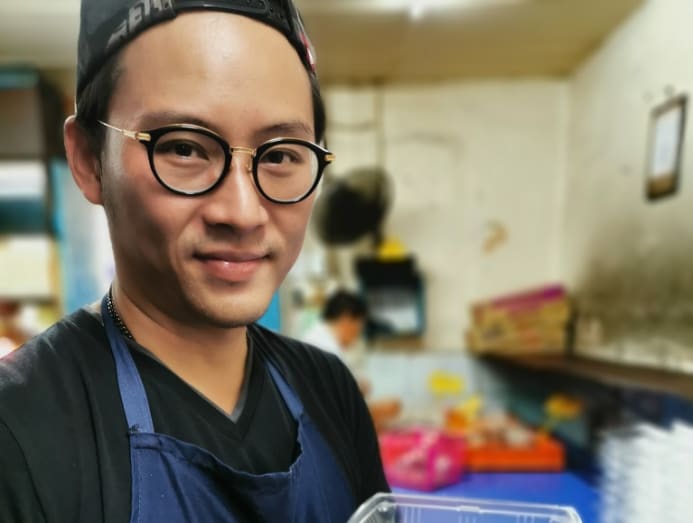
“But we decided against it because we don’t want to compromise on our quality,” he added.
Mr Lim concurred, adding that an expansion could eventually hurt Hiap Joo’s brand in the long run.
“The economy is uncertain and many bakeries in Malaysia have closed down recently,” said Mr Lim. “We don’t want to risk making our cakes taste different. Consistency is most important.”





